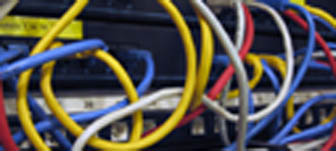This article is more than 1 year old
Students cluster for fame and glory at SC10
Go Hard or Go Home
SC10 SC10 Student Cluster Competition: Go Hard or Go Home
This is cool: eight university teams from around the world descend on the SC10 supercomputing show in New Orleans next month to take part in the Student Cluster Competition (SCC).
The students bring their own self-designed and built clusters to the show, re-assemble them, and race to complete a set of benchmarks and workloads in the quickest time.
The competition will test their system design skills, their aptitude for learning new programs and new methods, and their ability to optimize code to produce more (and better) output than their rivals.
This Register HPC webcast discusses the SCC, the tasks, what the teams go through, and how they are judged. Hai Ah Nam, SC10 committee chair for this event, sets the stage for what’s to come in just three short weeks.
Cluster Luster
Sure, there are other competitions in the world. In the United States, we have the Super Bowl football championship, baseball’s World Series, and the NCAA basketball tournament. The rest of the world has World Cup soccer, the Olympics, and racing motorcycles on frozen lakes. These events attract a reasonable number followers and some attention from the Media.
But they all fall short in one crucial area: none require participants to have any technical abilities – nary a line of code nor a config file in the bunch. And that’s sad.

Cables to the tables
This is why the SCC is poised to be a breakout event at this year’s SC10. This competition has everything to appeal to the modern tech-savvy audience. There’s a hardware component: students design and build the biggest, fastest cluster they can – limited only by their imaginations and the 2.86kW power limit. It has software: students need to intimately learn and optimize different applications to run on the system they’ve designed.
Best of all, it has human drama. To successfully compete takes intelligence, adaptability, and endurance. The students have only 46 hours to run the workloads and provide results to the judges. The winning team will have to put together a solid plan and then execute that plan in the face of pressure and adversity.
HPC benchmarks
The SCC is a crucible in which technical skills, character, teamwork, and will to succeed are blended together and then fired in a kiln fueled by HPC benchmarks and time pressure. (Glad that sentence didn’t turn out too overwrought.)
Who among us hasn’t dreamed of being recognized as being the very best? Who hasn’t wanted to build that system that cranks out enough precise output to put all the other systems to shame? It’s the stuff that life is made of. But how many of us have had the opportunity, or had the guts to try? These plucky students are doing exactly that, and they’re putting it all on the line for the world to see.
This competition has captured my imagination, and I want to see if I can infect others (with my interest in the SCC, I mean). During the conference I’ll talk to the teams to get to know them, learn about their plans, and assess their chances at winning the gold. (No, there isn’t any actual gold.)
Check back soon for the next webcast – I’ll be talking with a past SCC participant, discussing the trials and tribulations his team faced in their effort. He will take us inside the competition and share some key success factors that might make the difference between victory and, well, not victory.
So get the SCC fever – pick your team and follow them through the competition. Start office betting pools. Get some T-shirts printed up, and order some of those big foam “We’re #1” finger things. It will be a fun ride.
SC10 Student Cluster Competition: Go Hard or Go Home
